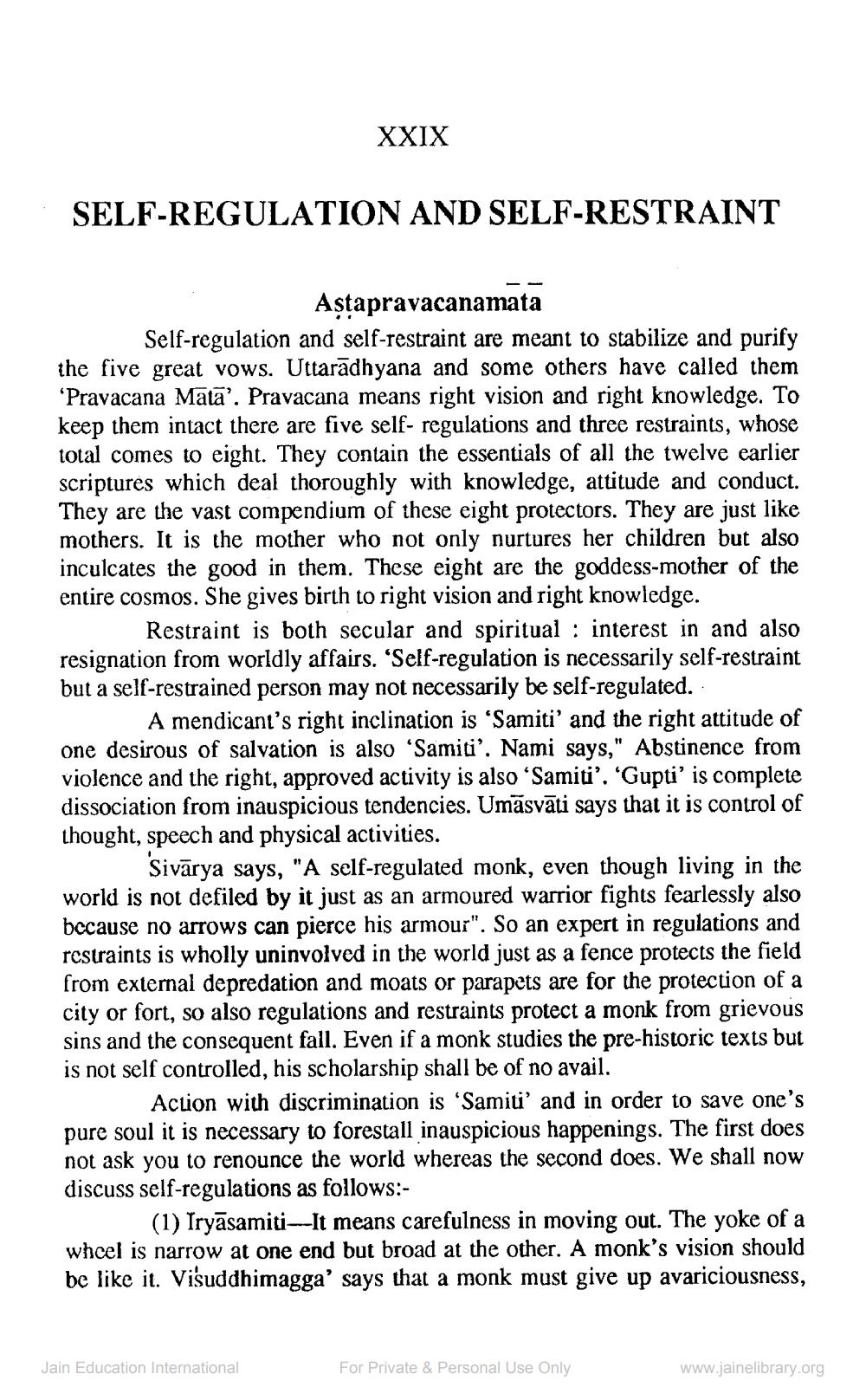________________
XXIX
SELF-REGULATION AND SELF-RESTRAINT
Astapravacanamata Self-regulation and self-restraint are meant to stabilize and purify the five great vows. Uttarādhyana and some others have called them 'Pravacana Mata'. Pravacana means right vision and right knowledge. To keep them intact there are five self-regulations and three restraints, whose total comes to eight. They contain the essentials of all the twelve earlier scriptures which deal thoroughly with knowledge, attitude and conduct. They are the vast compendium of these eight protectors. They are just like mothers. It is the mother who not only nurtures her children but also inculcates the good in them. These eight are the goddess-mother of the entire cosmos. She gives birth to right vision and right knowledge.
Restraint is both secular and spiritual : interest in and also resignation from worldly affairs. 'Self-regulation is necessarily self-restraint but a self-restrained person may not necessarily be self-regulated.
A mendicant's right inclination is 'Samiti' and the right attitude of one desirous of salvation is also 'Samiti'. Nami says," Abstinence from violence and the right, approved activity is also 'Samiti'. 'Gupti' is complete dissociation from inauspicious tendencies. Umāsvāti says that it is control of thought, speech and physical activities.
Sivārya says, "A self-regulated monk, even though living in the world is not defiled by it just as an armoured warrior fights fearlessly also because no arrows can pierce his armour". So an expert in regulations and restraints is wholly uninvolved in the world just as a fence protects the field from external depredation and moats or parapets are for the protection of a city or fort, so also regulations and restraints protect a monk from grievous sins and the consequent fall. Even if a monk studies the pre-historic texts but is not self controlled, his scholarship shall be of no avail.
Action with discrimination is 'Samiti' and in order to save one's pure soul it is necessary to forestall inauspicious happenings. The first does not ask you to renounce the world whereas the second does. We shall now discuss self-regulations as follows:
(1) Tryāsamiti--It means carefulness in moving out. The yoke of a whcel is narrow at one end but broad at the other. A monk's vision should be like it. Visuddhimagga' says that a monk must give up avariciousness,
Jain Education International
For Private & Personal Use Only
www.jainelibrary.org




